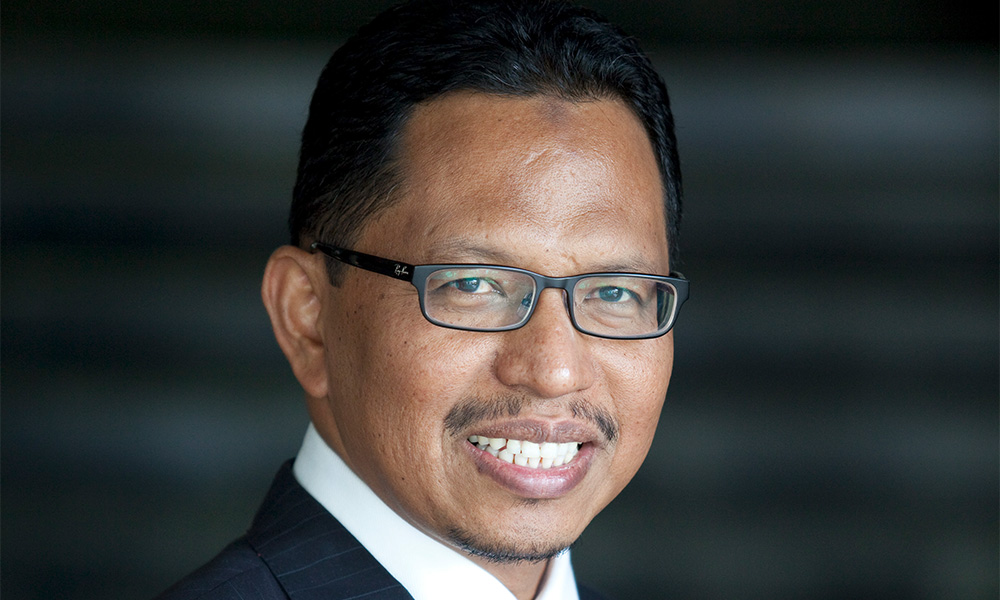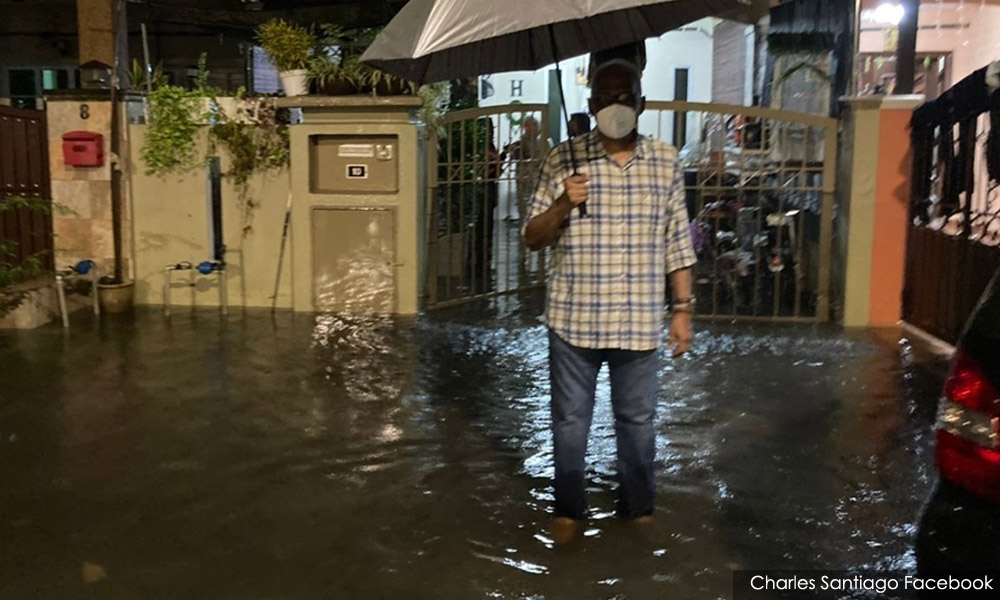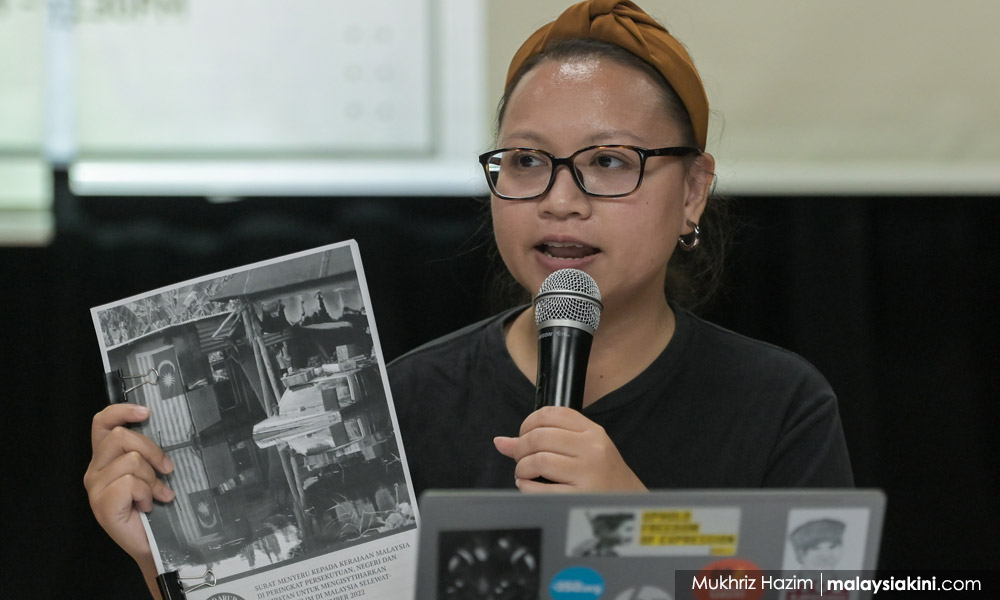Traumatised by chest-deep waters in recent floods, residents around Kampung Sungai Belat, Pahang plan to relocate to homestays for the duration of the monsoon season, said Kuantan MP Fuziah Salleh.
Those who cannot afford to do so will continue to live there in fear, she told a symposium on climate change organised by the opposition leader's office in Parliament yesterday.
“More than 30,000 families live here, so 100,000 people are living in fear because the flood mitigation project has been delayed for more than one-and-a-half years.
“It never flooded that bad before, but because this flood mitigation project is not ready, they are now facing chest-high water. They are traumatised.
“The project is not ready. There is a pump house but no electrical supply. TNB will not supply electricity because there is a planning permit for the project,” she said.
Fuziah (above) said this is just one example of how extreme rainfall due to climate change is affecting people on the ground, and the lack of a national adaptation plan is giving little comfort.
“This is why we need a (parliamentary) select committee (on climate change and biodiversity) to scrutinise what the ministry is doing,” she said during the panel discussion.
In response, fellow panellist, Environment and Water Ministry secretary-general Zaini Ujang said the national adaptation plan is already in the drafting stages, pending the global adaptation plan due in 2024.
“We will have to adjust to the United Nations Framework Convention on Climate Change's global adaptation plan, which will be ready by 2024.
“If we do it first then we will have to redo it in 2024. We are already starting in stages and will adjust in 2024,” he said.
On the flood mitigation project in Kuantan, he said the project was delayed due to movement restrictions caused by Covid-19.
Flash floods due to clogged drains
Zaini also said 90 percent of flash floods which occur in Malaysia are caused by clogged drains, filled with sand, debris and rubbish.
He said if rainwater is not cleared into drains within 20 minutes of falling, flash floods will occur.
“The issue is, why are people throwing rubbish around? Sometimes, the people causing the floods are those throwing the rubbish and God brings a calamity onto him by causing a flood in his area,” he said.
When pressed by the moderator, Zaini admitted existing drainage may not be able to cope with extreme rainfall caused by climate change even if the drains are clean.
This is why, he said, there are multiple flood mitigation infrastructures built or are underway, while drainage specifications have been changed to ensure future drains can cope with increasing rainfall.

He pointed out that in March, Terengganu received 1042mm of rain in four days, an unprecedented amount of rainfall in Malaysian history.
However, no lives were lost and the flood waters receded within a day thanks to the Kerteh dam and other flood mitigation infrastructure, he said.
“The rainfall in Terengganu was extreme compared to in 2014 when it flooded in Kelantan. It rained for eight days and only 940mm of rainfall fell.
“This data is important for administrators to understand how we can adapt,” he said.
Budget should deal with climate change
Klang MP Charles Santiago disagreed with Zaini that 90 percent of flash floods are caused by clogged drains.
He said the need to upgrade drainage and irrigation infrastructure to mitigate climate change should be given priority in the upcoming national budget.
“We should give priority to climate change and allocate sufficient funds to address climate change.
“Pakistan only contributed one percent of global emissions but look at the disaster there. If we don't take action now, we will face the same problem. In fact, we are already facing the problem,” he said.

He added that there is little urgency at the local level, with local council and district officers claiming to be “waiting for instructions” before preparing for the upcoming flood season.
“Whose instructions are they waiting for?” Charles asked.
To ensure climate change mitigation and adaptation are on the national agenda, he proposed the finance minister meet with MPs and NGOs, to understand what is needed and include them in the national budget, due to be tabled in Parliament next month.
“When the government brings the budget to Parliament it cannot be changed,” he said.
He also called for a high-level commission on the impact of floods on residents, especially on the poor and marginalised.
The MP also proposed a Climate Change Ministry to be formed, to oversee all climate adaptation projects and related policies, and for the parliamentary select committee on climate change as an oversight body for this ministry.
Amend Constitution on right to clean water
Meanwhile, the Klang and Kuantan MPs agreed with a proposal by environment researcher Wong Pui Yi, who during question time proposed the federal Constitution be amended to safeguard the right to clean water and a healthy environment.
She said this is the case in 156 countries but Malaysians are not given this constitutional right.
She also urged for amendments in the legal system to allow precautionary litigation against potential polluters and for lawsuits to be filed on behalf of future generations, against potential environmental degradation.
Wong said this is possible in the Philippines but hits a snag in Malaysia due to the locus standi issue, where one must be immediately affected before one can mount a legal case.

Also speaking on the panel was Klima Action Malaysia (Kamy)'s Ili Nadiah Dzulfakar, who noted that Malaysia was already a signatory to UN resolutions which state that a clean and healthy living environment is a living right.
She said it is important to note that any delay in action is passing the burden to the next generation - a generation already facing poor economic conditions due to the pandemic.
“At the turn of every crisis, young people are agents of transformation and solutions. We demand that a Climate Change Act is prioritised.
“We are running against time. We don't have three to five years to wait for it to be tabled in Parliament,” she said.
Nadiah said the act must include the national adaptation plan and have a framework prioritising the needs of the vulnerable and providing safeguards for those displaced by disasters.
“The language of human rights must be the basis of the Climate Change Act,” she said.
She added that action does not just include proactive mitigation and adaptation measures, but also takes leaders in developing countries to push developed nations to provide more funding and support.
This is because the bulk of emissions come from developed countries but the ones bearing the brunt are in the developing world.
“What happens in other countries affects us. A heatwave in India impacts global food security. We cannot pretend that we will be spared and that we are not vulnerable.” - Mkini



No comments:
Post a Comment
Note: Only a member of this blog may post a comment.